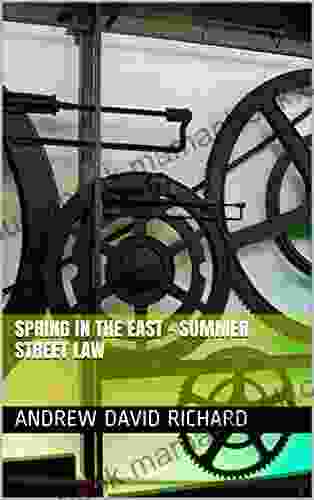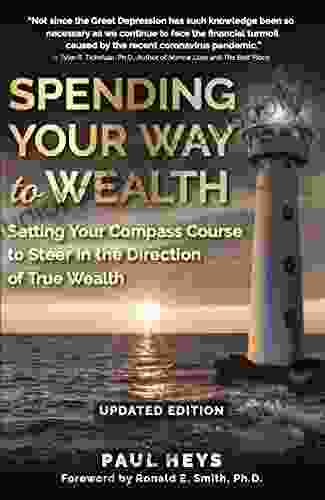The "Where Have All the Good Men Gone?" Hypothesis: Investigating the Causes and Consequences of the Gender Imbalance in Romantic Relationships

5 out of 5
| Language | : | English |
| File size | : | 364 KB |
| Text-to-Speech | : | Enabled |
| Enhanced typesetting | : | Enabled |
| Word Wise | : | Enabled |
| Print length | : | 19 pages |
| Screen Reader | : | Supported |
In the realm of romantic relationships, a persistent question has emerged among women: "Where have all the good men gone?" This sentiment, often expressed with a mixture of frustration and resignation, has given rise to the "Where Have All the Good Men Gone?" hypothesis. This hypothesis proposes that there is a shortage of eligible men who meet the criteria and expectations women have for romantic partners. While this hypothesis has been widely discussed in popular culture, it is essential to examine its validity and explore the underlying causes and consequences of any perceived gender imbalance.
Potential Causes of the Gender Imbalance
Several factors have been identified as potential contributors to the perceived scarcity of eligible men.
1. Changing Social Expectations and Values
Modern society has witnessed a shift in gender roles and expectations. Women have made significant strides in education, career, and financial independence, leading to a reassessment of traditional relationship dynamics. As women become more assertive and self-sufficient, they may have higher expectations for their partners and seek men who share their values and aspirations. This can potentially narrow the pool of men who meet their criteria.
2. Educational and Economic Disparities
Research indicates that women are increasingly outpacing men in terms of educational attainment and career success. This educational and economic imbalance can create a gap between the expectations and availability of eligible men. Women with higher levels of education and income may find it challenging to find compatible partners who match their intellectual and financial status.
3. Geographic and Demographic Factors
Geographic distribution and population demographics can also play a role in the gender imbalance. In some areas, there may be a higher concentration of women than men, particularly in urban centers where women often relocate for career opportunities. This can lead to a localized shortage of eligible men.
4. Cultural and Societal Norms
Cultural and societal norms can shape the expectations and behaviors of both men and women in romantic relationships. In some cultures, men are expected to be the primary breadwinners and protectors, while women are seen as nurturers and caregivers. These traditional roles can limit the pool of men who are perceived as suitable partners for women who desire a more egalitarian relationship.
Consequences of the Gender Imbalance
1. Relationship Satisfaction and Stability
The perceived shortage of eligible men can have implications for relationship satisfaction and stability. Women who struggle to find suitable partners may experience frustration, loneliness, and anxiety about their romantic prospects. This can potentially lead to a decrease in relationship satisfaction and an increased risk of relationship breakdown.
2. Mate Selection and Compromise
The gender imbalance may pressure women to lower their expectations and compromise in mate selection. Faced with a limited pool of eligible men, women may feel compelled to accept partners who do not fully meet their ideal criteria. This can result in less satisfying and fulfilling relationships.
3. Social and Psychological Implications
The perpetuation of the "good men gone" hypothesis can have broader social and psychological implications. It can reinforce gender stereotypes and create a sense of scarcity and competition among women. Additionally, it can contribute to feelings of hopelessness and disempowerment, as women may internalize the belief that there are not enough desirable men available.
Realities and Misconceptions
It is important to critically examine the realities and misconceptions surrounding the "Where Have All the Good Men Gone?" hypothesis.
1. The "Good Men" Ideal
The concept of a "good man" is subjective and varies widely among individuals. Women have unique preferences and expectations in romantic partners, and what one woman considers a "good man" may not align with the preferences of another. It is essential to recognize the diversity in perspectives and avoid perpetuating narrow stereotypes.
2. Availability of Eligible Men
Contrary to the hypothesis, research suggests that there is not an absolute shortage of eligible men. While there may be imbalances in specific age groups or geographic areas, overall, there is a relatively equal distribution of men and women in the population. It is important to approach the issue with a realistic understanding of the available data.
3. Communication and Negotiation
The gender imbalance alone does not determine the success or failure of romantic relationships. Effective communication, negotiation, and compromise are crucial for building fulfilling partnerships. Women should feel empowered to express their needs and expectations while also being open to considering partners who may not fit perfectly into a predefined mold.
The "Where Have All the Good Men Gone?" hypothesis raises important questions about the dynamics of romantic relationships and the challenges faced by women in finding compatible partners. While there may be some validity to the notion of a gender imbalance in certain contexts, it is essential to approach the issue with a balanced and nuanced perspective. Recognizing the complexities of mate selection, societal expectations, and individual preferences is crucial for understanding the complexities of romantic relationships.
Ultimately, the solution to the perceived shortage of eligible men lies not in lowering expectations or perpetuating gender stereotypes but in fostering open communication, encouraging equitable relationships, and empowering women to make choices that align with their values and aspirations. By challenging traditional gender roles and promoting relationship dynamics that embrace diversity and equality, we can create a more inclusive and fulfilling landscape for all.
5 out of 5
| Language | : | English |
| File size | : | 364 KB |
| Text-to-Speech | : | Enabled |
| Enhanced typesetting | : | Enabled |
| Word Wise | : | Enabled |
| Print length | : | 19 pages |
| Screen Reader | : | Supported |
Do you want to contribute by writing guest posts on this blog?
Please contact us and send us a resume of previous articles that you have written.
 Top Book
Top Book Novel
Novel Fiction
Fiction Nonfiction
Nonfiction Literature
Literature Paperback
Paperback Hardcover
Hardcover E-book
E-book Audiobook
Audiobook Bestseller
Bestseller Classic
Classic Mystery
Mystery Thriller
Thriller Romance
Romance Fantasy
Fantasy Science Fiction
Science Fiction Biography
Biography Memoir
Memoir Autobiography
Autobiography Poetry
Poetry Drama
Drama Historical Fiction
Historical Fiction Self-help
Self-help Young Adult
Young Adult Childrens Books
Childrens Books Graphic Novel
Graphic Novel Anthology
Anthology Series
Series Encyclopedia
Encyclopedia Reference
Reference Guidebook
Guidebook Textbook
Textbook Workbook
Workbook Journal
Journal Diary
Diary Manuscript
Manuscript Folio
Folio Pulp Fiction
Pulp Fiction Short Stories
Short Stories Fairy Tales
Fairy Tales Fables
Fables Mythology
Mythology Philosophy
Philosophy Religion
Religion Spirituality
Spirituality Essays
Essays Critique
Critique Commentary
Commentary Glossary
Glossary Bibliography
Bibliography Index
Index Table of Contents
Table of Contents Preface
Preface Introduction
Introduction Foreword
Foreword Afterword
Afterword Appendices
Appendices Annotations
Annotations Footnotes
Footnotes Epilogue
Epilogue Prologue
Prologue Gav Thorpe
Gav Thorpe Chris Reavis
Chris Reavis Gregg Hurwitz
Gregg Hurwitz Nghi Vo
Nghi Vo Nancy Jo Sales
Nancy Jo Sales Jack Dikian
Jack Dikian Jonathan Meiburg
Jonathan Meiburg Steven Fawcett
Steven Fawcett Guy Blaze
Guy Blaze Edward Lee
Edward Lee Gabriel Baptista
Gabriel Baptista Rob G
Rob G Ulrich Baer
Ulrich Baer Maria Rae
Maria Rae Sophia Delaat
Sophia Delaat Bryan Harris
Bryan Harris Cathy Bryanne
Cathy Bryanne John Green
John Green Callida Bug
Callida Bug Bill Meiers
Bill Meiers
Light bulbAdvertise smarter! Our strategic ad space ensures maximum exposure. Reserve your spot today!
 Rudyard KiplingThe Essential Styles Everyone Should Know: A Comprehensive Guide to the...
Rudyard KiplingThe Essential Styles Everyone Should Know: A Comprehensive Guide to the...
 Kendall WardSpring In The East Summer Street Law: A Comprehensive Guide to the Renowned...
Kendall WardSpring In The East Summer Street Law: A Comprehensive Guide to the Renowned... Orson Scott CardFollow ·10k
Orson Scott CardFollow ·10k Jayson PowellFollow ·2.3k
Jayson PowellFollow ·2.3k Gregory WoodsFollow ·19.3k
Gregory WoodsFollow ·19.3k Kenneth ParkerFollow ·9k
Kenneth ParkerFollow ·9k Donovan CarterFollow ·7.8k
Donovan CarterFollow ·7.8k Fernando BellFollow ·18.9k
Fernando BellFollow ·18.9k Kelly BlairFollow ·10.4k
Kelly BlairFollow ·10.4k Pablo NerudaFollow ·18.2k
Pablo NerudaFollow ·18.2k

 Warren Bell
Warren BellRemembrance of Love and War: A Timeless Tale of Loss,...
Erich Maria Remarque's...

 Terry Bell
Terry BellNever Forget the Spring of 2024: A Defining Moment in...
The Spring of Transformation As the first...

 Jacob Hayes
Jacob HayesSplit Testing Profits: The Ultimate Guide to Optimizing...
In the highly...

 Jackson Blair
Jackson BlairSpending Your Way to Wealth: Is It Possible?
We've all heard...

 Jerome Blair
Jerome BlairBoxer: The Fight Within Micah Arnold - A Journey of...
In the heart of...
5 out of 5
| Language | : | English |
| File size | : | 364 KB |
| Text-to-Speech | : | Enabled |
| Enhanced typesetting | : | Enabled |
| Word Wise | : | Enabled |
| Print length | : | 19 pages |
| Screen Reader | : | Supported |










